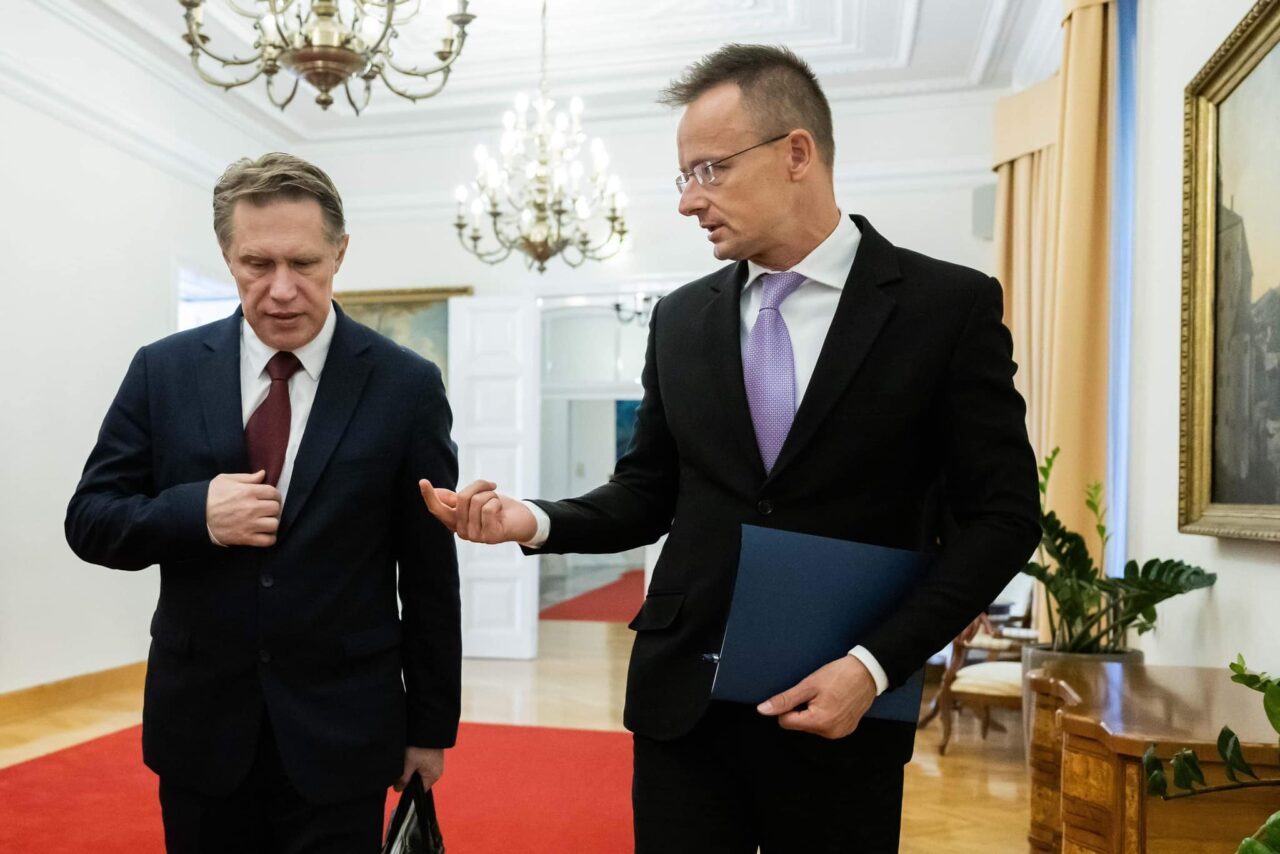Hungary continues cooperation with Russia in unsanctioned sectors

Hungary will continue cooperation with Russia in the areas not falling under European Union sanctions, as that is in the national interest, especially in energy security, Foreign Minister Péter Szijjártó said after talks with Russian Health Minister Mikhail Murashko in Budapest on Wednesday.
The meeting was held on the sidelines of an environmental and health ministers’ conference organised in cooperation with the World Health Organisation, which offered a good opportunity to review cooperation between the two countries, Szijjártó told a joint press conference with Murashko.
Russia remains a reliable partner in the delivery of fossil fuels, without which “it would be physically impossible” to fulfil demand in Hungary, he said.
Under a long-term contract between the two countries, Russia has delivered 2.5 billion cubic meters of natural gas this year. “It is partially thanks to those deliveries that Hungary already has 42 percent of its annual consumption in reserves, compared with 23 percent in the EU on average,” he said.
Crude deliveries through the Druzhba pipeline are also uninterrupted, and have reached 2.2 billion cubic meters, he said.
“I would like to state loud and clear that Hungary has a vested interest in maintaining its decades-long energy cooperation with Russia,” he said.
At the same time, Hungary is looking to diversify its resources, he added.
The government also continues to support companies operating in Russia outside of the sectors hit by EU sanctions, “as do our Western competitors,” he said. Those sectors include banking, pharmaceuticals and health care, agriculture, the food industry and construction, he said.
The ministers discussed cooperation in oncology, Szijjártó said.
He also thanked Russia for “ensuring the safety of one million Hungarian lives” through Sputnik vaccines during the coronavirus pandemic.
Responding to questions, Szijjártó said the government’s stance on the war in Ukraine had always been clear. “We condemn the war in no uncertain terms … and think that it is in the interest of all those involved to put a swift end to it,” he said.
“At the same time, we also think that an agreement ensuring a lasting peace is only possible if we keep the channels of communication open,” he said.
Regarding Ukraine’s law on public education, Szijjártó said local authorities there “have been curbing the rights of ethnic minorities since 2015, and Hungary’s government will continue to keep the matter on the agenda until the original state of affairs is restored”.
“We don’t care how our actions are judged elsewhere in the world. We do not care if they like it in Russia, the US or Brussels … because this is about the Hungarians living in Transcarpathia,” he said, referring to a region in south-western Ukraine with a sizeable ethnic Hungarian population.
Hungary will continue to block further EU financing of Ukraine weapon deliveries until Kyiv strikes Hungarian bank OTP from its list of the financers of the war, he added.


I would like to state loud and clear that not Hungary but Fidesz has a vested interest in maintaining its’ decades-long energy cooperation with Russia. Why were the terms of the 15 year agreement signed Nov 2021 kept secret from the public? What kickbacks took place?
I wholeheartedly agree with @Anonymous’ comment.
We can all rest assured that we’ll never find out about all the kickbacks that take place, but we can rest assured that they are all too commonplace with this Fidesz Government.
We can also rest assured that all those Chinese battery plants (and anything else China produces in Hungary) are not just out of goodwill from this Fidesz Government.
Just imagine (if you will), if there is a certain product that you want, and there are two options, one is “Made in China”, and the other is “Made in Hungary/ EU” (Chinese of course), which would you rather buy.
I’m quite sure that the “Made in Hungary/EU” stamp does not come cheap. Someone, some people, are reaping the the benefits (read: kickbacks) of being allowed to manufacture in Hungary.
The commenter who said that “not Hungary but Fidesz has a vested interest in maintaining its’ decades-long energy cooperation with Russia” clearly has no idea how the world works. Hungary has the lowest energy prices in Europe. That didn’t and doesn’t happen by chance. If “Fidesz” was following the E.U.’s diktats and expectations, many Hungarians would not be able to afford to heat their homes or take showers. Refusing all ties with Russia or whoever else is the bogeyman du jour, pursuing asinine and totally uneconomical “green” alternatives, shutting down coal and shunning nuclear… – such measures cause nothing but misery and poverty. No, thanks. The commenter and others like him can move to plenty of places in the West who practice those policies; I’ll be looking forward to their report a year later.